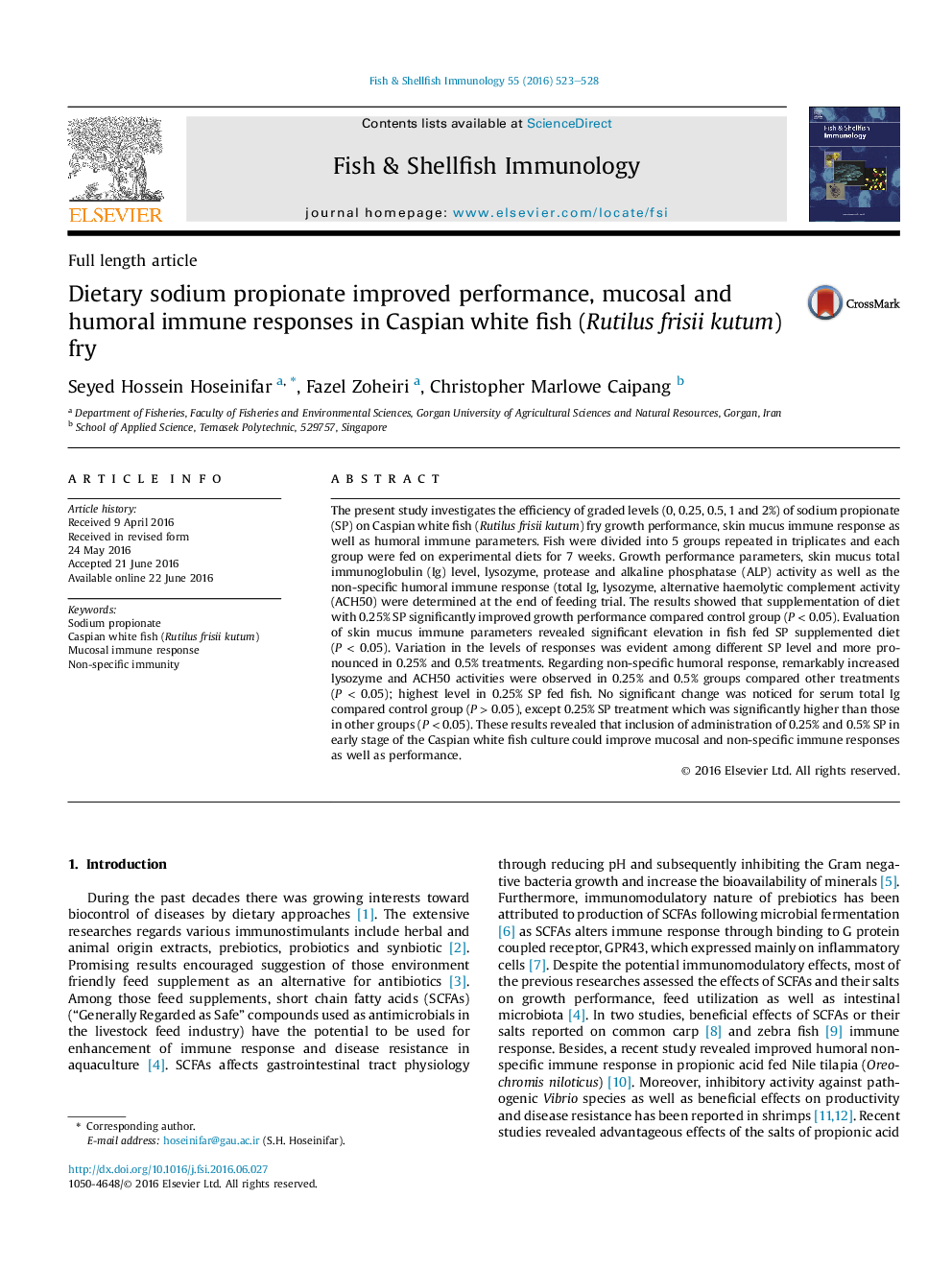| کد مقاله | کد نشریه | سال انتشار | مقاله انگلیسی | نسخه تمام متن |
|---|---|---|---|---|
| 2430805 | 1553619 | 2016 | 6 صفحه PDF | دانلود رایگان |

• Dietary sodium propionate increased mucosal immune response in Caspian white fish fry.
• Sodium propionate beneficially affected non-specific humoral immune responses.
• Sodium propionate fed Caspian white fish fry showed improved growth performance.
• Low levels of sodium propionate inclusion were more beneficial.
The present study investigates the efficiency of graded levels (0, 0.25, 0.5, 1 and 2%) of sodium propionate (SP) on Caspian white fish (Rutilus frisii kutum) fry growth performance, skin mucus immune response as well as humoral immune parameters. Fish were divided into 5 groups repeated in triplicates and each group were fed on experimental diets for 7 weeks. Growth performance parameters, skin mucus total immunoglobulin (Ig) level, lysozyme, protease and alkaline phosphatase (ALP) activity as well as the non-specific humoral immune response (total Ig, lysozyme, alternative haemolytic complement activity (ACH50) were determined at the end of feeding trial. The results showed that supplementation of diet with 0.25% SP significantly improved growth performance compared control group (P < 0.05). Evaluation of skin mucus immune parameters revealed significant elevation in fish fed SP supplemented diet (P < 0.05). Variation in the levels of responses was evident among different SP level and more pronounced in 0.25% and 0.5% treatments. Regarding non-specific humoral response, remarkably increased lysozyme and ACH50 activities were observed in 0.25% and 0.5% groups compared other treatments (P < 0.05); highest level in 0.25% SP fed fish. No significant change was noticed for serum total Ig compared control group (P > 0.05), except 0.25% SP treatment which was significantly higher than those in other groups (P < 0.05). These results revealed that inclusion of administration of 0.25% and 0.5% SP in early stage of the Caspian white fish culture could improve mucosal and non-specific immune responses as well as performance.
Journal: Fish & Shellfish Immunology - Volume 55, August 2016, Pages 523–528